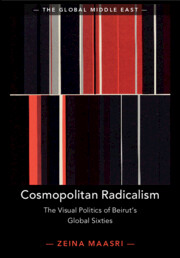Refine search
Actions for selected content:
10 results
Chapter 4 - Third Worldism in African Literature
- from Part I - Decolonization Currents
-
-
- Book:
- African Literature in Transition
- Published online:
- 07 November 2025
- Print publication:
- 20 November 2025, pp 87-108
-
- Chapter
- Export citation
2 - Decolonisation and the Global Cold War
- from Part I - Non-Sovereign States in the Context of Global Decolonisation
-
- Book:
- Global Decolonisation and Non-Sovereignty
- Published online:
- 16 September 2025
- Print publication:
- 31 July 2025, pp 59-87
-
- Chapter
- Export citation
Chapter 1 - Kofi Awoonor Imagines China
-
- Book:
- China in Twentieth- and Twenty-First-Century African Literature
- Published online:
- 01 June 2023
- Print publication:
- 15 June 2023, pp 17-53
-
- Chapter
- Export citation
Chapter 4 - Racialization and Afro-Chinese Identity
-
- Book:
- China in Twentieth- and Twenty-First-Century African Literature
- Published online:
- 01 June 2023
- Print publication:
- 15 June 2023, pp 157-208
-
- Chapter
- Export citation
Two - The End of Legal Reformism?
- from Part One - The Tragic Optimism of the Law: THE END OF A STORY
-
- Book:
- Law and the Epistemologies of the South
- Published online:
- 07 August 2023
- Print publication:
- 01 June 2023, pp 22-37
-
- Chapter
- Export citation
5 - Crisis
-
- Book:
- Red Internationalism
- Published online:
- 05 February 2023
- Print publication:
- 23 February 2023, pp 195-227
-
- Chapter
- Export citation
2 - The Historical and Ideational Context of Postcolonial Liberation Wars
-
- Book:
- Second-Generation Liberation Wars
- Published online:
- 17 February 2022
- Print publication:
- 24 February 2022, pp 55-89
-
- Chapter
- Export citation
2 - Looking Eastwards
- from Part I - Imperialism
-
-
- Book:
- Revolutions in International Law
- Published online:
- 21 January 2021
- Print publication:
- 18 February 2021, pp 27-55
-
- Chapter
- Export citation

Cosmopolitan Radicalism
- The Visual Politics of Beirut's Global Sixties
-
- Published online:
- 20 July 2020
- Print publication:
- 06 August 2020
The ‘emancipation of media’: Latin American advocacy for a New International Information Order in the 1970s
-
- Journal:
- Journal of Global History / Volume 14 / Issue 2 / July 2019
- Published online by Cambridge University Press:
- 08 July 2019, pp. 301-320
-
- Article
- Export citation
